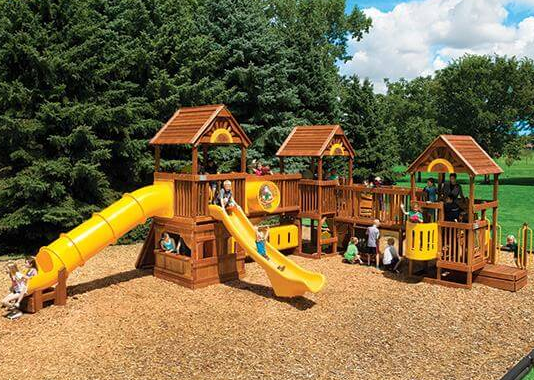Playground equipment plays a pivotal role in enhancing the physical, mental, and social health of children. This article delves into the specific ways in which playgrounds contribute to a healthier lifestyle for young individuals, backed by compelling data and current studies.
Enhancing Physical Health
Playground activities are fundamentally designed to promote physical exercise among children. Climbing structures, swings, and slides encourage movements such as climbing, jumping, and running, which are excellent for cardiovascular health, muscle development, and coordination. Recent studies highlight that children engaging in playground activities for at least 30 minutes daily show a 20% improvement in cardiovascular fitness over those who do not participate in similar physical activities. Additionally, regular play helps combat childhood obesity, a growing concern worldwide.
Boosting Mental Well-being
Beyond physical health, playgrounds offer significant benefits to children's mental and emotional well-being. Engaging in play allows children to express themselves, explore, and release stress. The natural setting of many playgrounds also contributes to reduced anxiety and depression levels. Research from the Child Mind Institute shows that children who play outdoors regularly have a 40% lower risk of developing mood disorders compared to those who spend more time indoors.

Fostering Social Skills
Social interactions are a crucial part of playground activities. Equipment such as seesaws and group swings necessitate cooperative play and communication among children. This interaction enhances important social skills like sharing, negotiating, and teamwork. According to a survey conducted in 2022, children who regularly interact in playground settings are 50% more likely to develop strong social skills by the age of 10, compared to those who are less active socially.
Encouraging Cognitive Development
Playground equipment also serves as a catalyst for cognitive development. Challenges presented by various playground structures like puzzle walls or strategy-based games stimulate problem-solving skills and creativity. Educational play equipment can incorporate elements that promote learning numbers, colors, and basic science concepts, making learning fun and interactive.
Promoting Inclusivity
Modern playgrounds are increasingly designed with inclusivity in mind, ensuring that children of all abilities can enjoy and benefit from the equipment. Adaptive swings, wheelchair-accessible pathways, and sensory-friendly materials are becoming standard in new installations. These inclusive designs ensure that all children, regardless of physical or developmental challenges, can participate and gain the health benefits of playground activities.
In light of these findings, it is clear that playground equipment serves as a vital tool in promoting comprehensive health benefits for children. By supporting physical fitness, mental health, social skills, cognitive development, and inclusivity, playgrounds are essential to fostering healthier, happier childhoods.